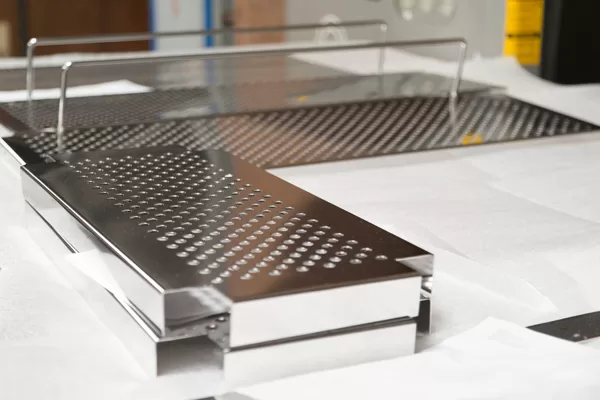Sheet Metal
Thin, versatile material used for manufacturing parts in automotive, aerospace, and other industries.
Sheet Metal Services
Sheet metal is the basis of all engineering today. It is a metal formed by an industrial proess into thin and flat pieces. Actually we can see it everywhere – from cars and machinery to house facades and furniture. NICE Rapid is a manufacturing company with strong capabilities in fabricating metal products. If you are interested, welcome to contact us to get more information!
Advantages of Sheet Metal
Here are the advantages of sheet metal in a more concise format.
Versatility
Easily adaptable for diverse applications.
Strength
Provides durability and structural support.
Cost-Effective
Affordable for mass production.
Efficiency
Processes yield precise parts quickly.

Types of Sheet Metal Fabrication Metals
There are many different metals that can be made into sheet metal, such as aluminum, brass, stainless steel, tin etc.
Galvanized steel plate SECC
The substrates of SECC are common cold-rolled steel coils, which not only have the mechanical properties and approximate machining properties of common cold-rolled steel sheets, but also have superior corrosion resistance and decorative appearance. In the electronic products, home appliances and furniture market has a great competitiveness and substitution.
General cold rolled plate SPCC
SPCC means that the ingots are continuously rolled through the cold rolling mill to the required thickness of the steel coil or sheet. SPCC surface without any protection, exposed to air is easy to be oxidized, especially in humid environment, the oxidation speed is accelerated, dark red rust occurs, the surface should be painted, electroplated or other protection when used.
SUS 304
One of the most widely used stainless steel, because of containing Ni (nickel), than steel containing Cr (chromium) more corrosion resistance, heat resistance, has a very good mechanical properties, no heat treatment hardening phenomenon, no elasticity.
Ready to Start Your Next Project?
Sheet Metal Fabrication Process
Three main types of sheet metal fabrication process: forming, cutting and joining.
Forming |
Stamping uses single or progressive dies to press the metal into the desired form. |
| Bending can be done either by press brakes or by hand. | |
| Roll forming has similar effects to bending. |
Cutting |
Laser cutting uses a focused beam of light for cutting through or engraving the material. |
| Waterjet cutting shoots high speed, concentrated streams of water filled with abrasives to erode a cut into the material. | |
| Machining uses a tool like a drill bit or lathe blade to cut off pieces of material. |
Joining |
Welding it acts by fusing the metal sheets together through melting them, while adding a filler |
| Brazing is a similar process, but it acts by melting a filler without melting the sheets. | |
| Adhesives hold together metal sheets. |
